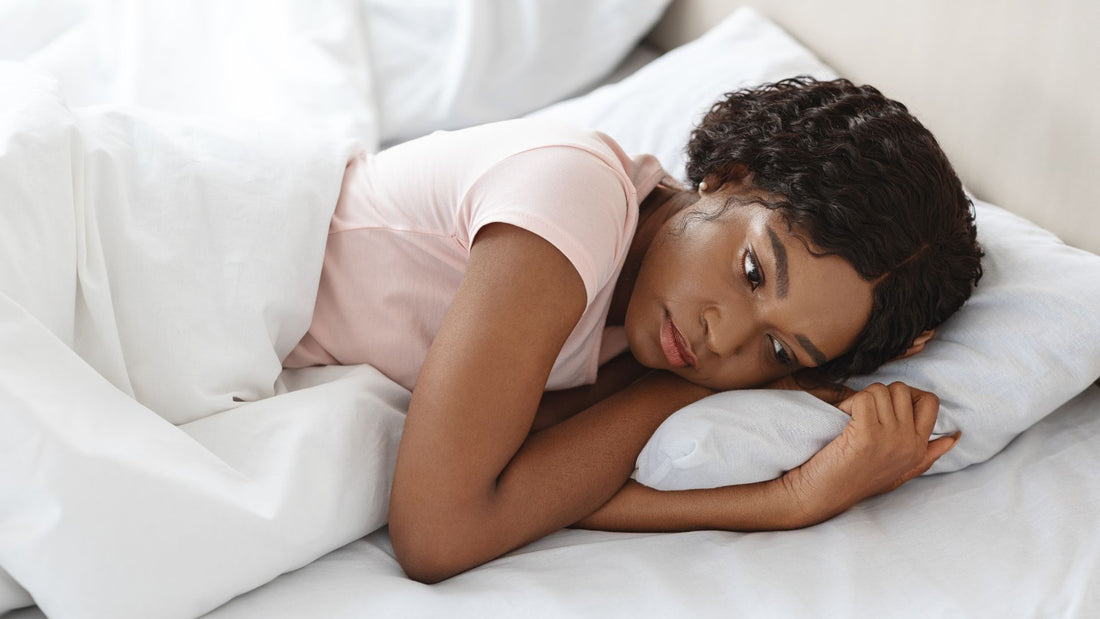If you’ve noticed a change in your sex drive – and you’re not comfortable with the situation – you might be worried about what’s happening. Do hormones play a part? Is it more about what’s happening in life?
In this short video, Gynecologist Anne Henderson explains why your libido can change at menopause, and what you can do if you’re concerned about changes to your sex drive.
Rest assured, you’re not alone if your libido reduces during perimenopause and menopause, it’s very normal, and there are many reasons you might not be feeling as interested in sex as you have done in the past few years. What’s more, there are plenty of ways to feel more keen if that’s what you’d like to do.
Prefer to read? Here’s the text version of Anne’s video
Changing sex drive at menopause – what is it?
First things first, it’s really important for women to realise that there is not a textbook definition of what a ‘normal’ libido or sex drive is – and that it is a very individual thing.
What’s key is whether a woman has noticed a change in her own sex drive relative to the preceding year or perhaps the preceding five years. So it’s the change rather than the actual quality or quantity of the sex drive that’s important.
Why does it happen?
A woman’s sex drive is a multifaceted function. It’s not necessarily directly linked to hormone levels as it is in men, and it is affected by numerous other factors.
We do have the declining hormone levels throughout the perimenopause – and I’m not denying that that plays a role – but at that stage in their lives women also have other changes:
- You might be changing jobs
- You might be going through a marital separation
- You might be looking after elderly parents
- You might be dealing with teenages
- Or affected by ‘empty nest syndrome’ when your kids leave home
So there are huge life events in most women in the late 40s to early 50s and I don’t think we should ignore the impact that those can also have on general function and sex drive.
Here’s more on what causes painful sex at menopause.
How can changes to sex drive be treated or managed?
I think the first step is general awareness, and not to put too much emphasis on it.
As with many things, if women focus on the libido and worry about it it becomes a separate stress in itself that will certainly lead to further impacts on sex drive.
So I think it’s important to acknowledge that any change is there and also seek help wherever possible because there is a lot that can be done to help women who are suffering from this problem.
What questions do other women ask about this?
This is certainly one of the most commonly discussed topics during consultations! Women often ask “is this normal?” “Is It just me?” “Why is this happening?” And simple reassurance that it’s a very common feature of the perimenopause and menopause is often all they need at the outset.
Here’s how to discuss painful sex with your partner and work through it together.
How can I get help if I’m not happy about changes to my sex drive?
The first step to take is to seek appropriate specialist advice from a menopausal viewpoint. My belief is that if we can get the hormone balance correct, that’s the starting point – if we don’t address that then other treatments and other options may not be effective.
However, I work very closely with a wide range of specialists and I regularly refer women on to psychosexual therapists if I believe that that will help them and there is a need for that expertise.
Here is how to talk to your doctor about menopause.
About Anne Henderson
Our fantastic Consultant Gynecologist Anne Henderson has worked within the health sector for 15 years. From running large-scale menopause clinics where she helped hundreds of women access then-pioneering body identical hormones through to working with complementary practitioners to provide truly holistic care, Anne leads the way when it comes to caring, innovative, whole-woman focused practice.
Read Anne’s full biography here.


